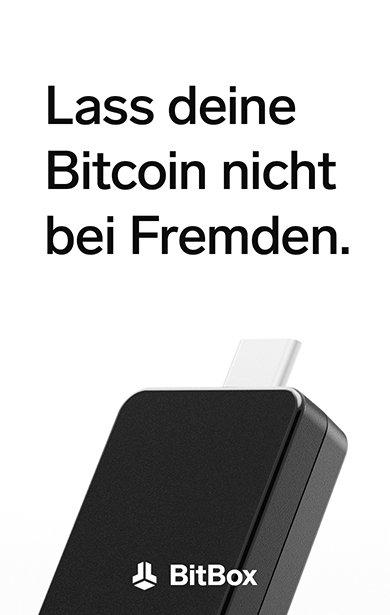Ethereum spot ETFs approved
Significance for Bitcoin and the entire market
Yesterday evening, the US Securities and Exchange Commission (SEC) approved eight spot ETFs based on Ethereum, the second-largest cryptocurrency after Bitcoin. This has far-reaching implications for the entire crypto market and also for Bitcoin, as it signals an about-turn in regulation and has reignited the debate as to which digital assets should be classified as commodities and which as securities.
Surprising approval
Just a week ago, it looked as if the SEC would reject Ethereum spot ETFs. On May 18, Bloomberg ETF expert James Seyffart wrote on the subject:
It's just not going to happen folks. Sorry.
James Seyffart
But the tide turned when rumors suddenly emerged at the start of the week that the SEC - presumably due to political pressure - was working behind the scenes to approve Ethereum ETFs after all.
Update: @JSeyff and I are increasing our odds of spot Ether ETF approval to 75% (up from 25%), hearing chatter this afternoon that SEC could be doing a 180 on this (increasingly political issue), so now everyone scrambling (like us everyone else assumed they'd be denied). See
... https://t. Eric Balchunas (@EricBalchunas) May 20, 2024
The Ethereum price reacted very positively to this news and ETH ended the day up almost 20 percent. However, Bitcoin also rose, albeit less strongly, in response to this news - presumably because the increased likelihood of Ethereum spot ETFs being approved was perceived by the market as a 180-degree turnaround in the general regulatory landscape regarding cryptocurrencies.
This is also supported by the current political support for more crypto-friendly regulation in the US, which is putting pressure on the Biden administration. This week, the House of Representatives voted in favor of FIT21, a bill that aims to make the regulation of cryptocurrencies less strict - Blocktrainer.de reported.
On Thursday evening, the final deadline for applications, ETH ETFs were finally approved. However, there was no official statement from the SEC. When the supervisory authority approved the same application for Bitcoin ETFs on January 10, a clarifying statement from SEC Chairman Gary Gensler followed shortly afterwards.
Meanwhile, it is still unclear when the Ethereum spot ETFs will be allowed to celebrate their first day of trading. For the Bitcoin spot ETFs, it was already the following day - in the context of the ETH ETFs, however, the start of trading is likely to be delayed.
The debate on the classification of cryptocurrencies
The approval of Ethereum spot ETFs in the US has far-reaching implications. Since the SEC document refers to a "commodity-based trust" in the context of Ethereum ETFs, it looks like it is now a done deal that ETH is a commodity in the eyes of the regulator. Coinbase's Chief Legal Officer is now certain of this as well.
This week, this day, has been a rollercoaster ride like I've never experienced before. ETH is effectively considered a commodity, as we've always known it would be.
Paul Grewal, CLO of Coinbase
For a long time, there was confusion in the regulatory community regarding the classification of the second largest cryptocurrencies. With the switch of the consensus mechanism from proof-of-work to proof-of-stake, which allows entities with many ETH to have more influence on the network, SEC chief Gary Gensler let it be known that he now classifies ETH as a security.
The Commodity Futures Trading Commission (CFTC), on the other hand, has long viewed the second-largest cryptocurrency as a commodity. This is also supported by the fact that the regulatory authority authorized trading in Ethereum futures on the CME futures exchange some time ago.
The problem with ETF approval
By giving the green light to Ethereum spot ETFs, the SEC is giving legitimacy to an asset and suggesting that it is a decentralized commodity like Bitcoin, although this is more than questionable. This is because there is usually no "premine" for a commodity, where a specific group buys into an asset before it is available to the public. In the case of Ethereum, the majority of coins were created without the general public - Bitcoin, on the other hand, has been open to everyone since day one.
Also, the success of a commodity does not normally depend on the decisions of a small group of developers. Ethereum is backed by the Ethereum Foundation, which finances and significantly influences the development of the network. This was the case, for example, when the network was rolled back as part of the "Dao hack" in 2016 and with further updates such as the switch from proof-of-work to proof-of-stake.
Furthermore, the concept of proof-of-stake is completely at odds with the idea of a commodity, as it grants power over the network to those entities that hold a lot of it - and since entities that stake their ETH also receive a corresponding reward through new coins, inequality and thus the concentration of power in the network inevitably grows over time. Decentralization can never be guaranteed in proof-of-stake networks because there can always be a small group that holds the majority of coins and thus shapes the network - without this being openly apparent. There are also economies of scale in staking, which creates incentives to stake coins via a large service provider.
With Bitcoin, on the other hand, the miners who create the blocks always have to perform work in the real world in the form of computing power. Since computing power requires energy and this is never centralized, there is a huge difference here.
Some members of the Bitcoin community were critical of the SEC and the cryptocurrency Ethereum in the context of the ETF approval.
The Ethereum ETF approval doesn't change the fact that they've changed their monetary policy 7 times in 7 years.
Luke Mikic⚡️🇸🇻🇦🇺 9-5 Escape Artist (@LukeMikic21) May 23, 2024
Ethereum is digital fiat.
They're just recreating all the problems of fiat and putting it on a blockchain. pic.twitter.com/M9Hsiq0N7a-
pre-mined ponzi. stay away-
Adam Back (@adam3us) May 24, 2024
Are all cryptocurrencies now commodities?
The SEC could have drawn a clear line by differentiating cryptocurrencies into commodities and securities, classifying only digital assets that are demonstrably decentralized like Bitcoin as commodities. With the classification of Ethereum as a commodity, the question rightly arises as to what distinguishes cryptocurrencies such as Solana, Cardano or Polygon from Ethereum and why the SEC has clearly classified them as securities in the past.
The SEC is likely to be in need of an explanation here and, consequently, the supervisory authority would then also have to accept ETF applications for many other cryptocurrencies. Although other cryptocurrencies would still lack the prerequisite that there is already a regulated and functioning futures market, in terms of their basic characteristics, there would hardly be a comprehensible explanation for a different classification.
It remains to be seen how this dilemma will unfold in the future and whether, metaphorically speaking, Pandora's box is now open.
Staking and ETFs
The SEC has not allowed asset managers to stake ether in the products. As a result, investors are missing out on a return of currently around 3 percent on their ETH, which they could earn if they used the services of providers such as Coinbase.
As issuers previously submitted their applications with the option of staking and potential investors are probably reluctant to let this option slip through their hands, it is conceivable that this will one day become possible after all.
However, there would then be a risk that large asset managers would have control over the supposedly decentralized network in one fell swoop. Also, due to the minimum lock-up period, issuers might not be able to sell their ETH directly if customers withdraw money, which could lead to turbulence or even a bank run and a price decoupling from the value of the underlying asset.
ETH ETF a threat to Bitcoin?
As the Bitcoin price also reacted positively when the Ethereum spot ETFs became likely on Monday, the market currently sees no risk for Bitcoin as a result. However, it is possible that institutional investors could shift a small portion of Bitcoin into Ethereum if the investment product is approved for trading. Hong Kong already has Bitcoin and Ethereum spot ETFs and initial inflow data shows that demand for Bitcoin was around 5.5 times that of Ethereum. Accordingly, the potential shift towards ETH is likely to be limited.
Arguably the bigger problem for Bitcoin, however, is that Ethereum's classification as a commodity makes it harder for the general public to differentiate between a truly decentralized cryptocurrency and one that clearly is not. If the SEC had drawn the line at Bitcoin in this respect, which would have been understandable, then most investors would probably have recognized more quickly what the fundamental difference is between Bitcoin and the number two Ethereum.
Even if the upcoming Ethereum spot ETFs will probably not have an immediate negative impact on the Bitcoin price, they may hinder the adoption of Bitcoin in the long term. With the approval, the supervisory authority is suggesting to the general public that proof-of-stake networks can keep up with Bitcoin in terms of decentralization and suitability as a digital commodity - and this as an authority that is committed to investor protection.






